Vocational training for sustainable livelihoods
One early winter morning, in Thai Son 1 village, Mon Son commune, the sound of the engine and the clicking of wrenches and pliers echoed throughout the small roadside repair shop. Vi Van Loc, 29 years old, a Thai ethnic, was busy changing the spark plugs of a customer's car as he recounted:
“Before, I only worked on the farm with my parents, not having enough to eat all year round. Since I learned to repair cars at Nghe An Ethnic Boarding Secondary School (located in Con Cuong commune), my life has changed completely. Now I have my own shop, repairing 7-8 cars a day, earning about 6-7 million VND per month.”
Loc said that in 2023, when the school's teachers went to the commune to recruit students for intermediate and elementary vocational training classes for youth in disadvantaged areas, commune officials went to each house to persuade them. "At first, I was hesitant, thinking I couldn't study. But then I thought again, if I kept working on the fields, I wouldn't get better, so I signed up to study," Loc recalled.
After the course, Vi Van Loc was supported with a basic set of tools to open a workshop right in the village. At first, it was just a small corrugated iron house, about 15 square meters wide, with a dirt floor, and a few old cars parked haphazardly in the corner. Now, Loc's workshop is more spacious, has a signboard, and a solid roof. Every morning, people in the surrounding area flock to bring their cars to be repaired. He also taught two young men in the village a trade, helping them find stable jobs.
Mr. Loc's story is no longer rare in Nghe An in recent years. Thanks to vocational training support, many people in disadvantaged areas have changed their mindset, have stable jobs, and gradually escaped poverty. That is also the goal that Nghe An province is aiming for when implementing the Sub-project on Vocational Education Development in Poor and Difficult Areas (Sub-project 2), under the Project on Vocational Education Development and Sustainable Employment (Project 4) in the National Target Program on Sustainable Poverty Reduction for the period 2021-2025.
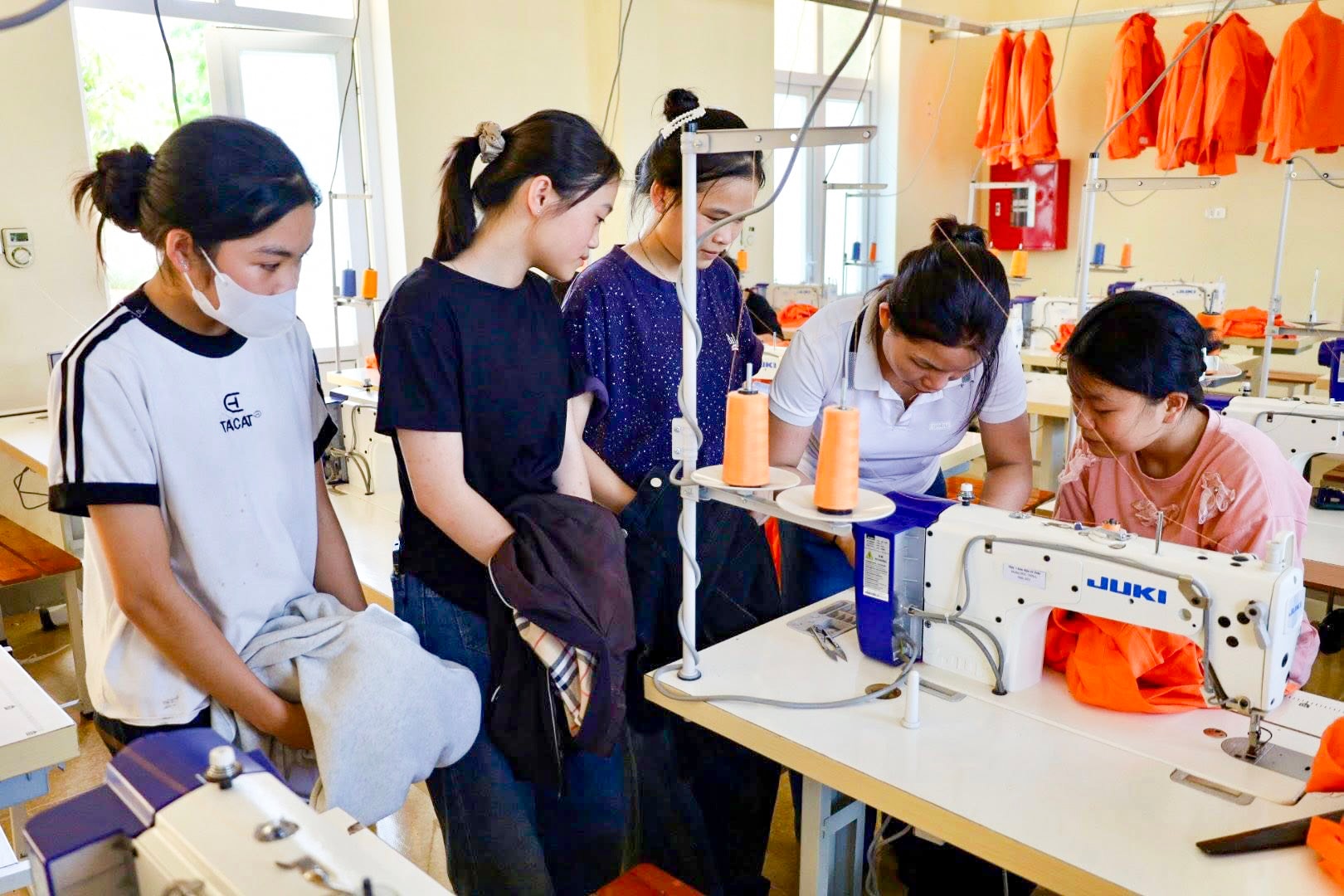
The sub-project focuses on developing vocational education in both scale and quality, linking training with job creation, livelihoods and sustainable income for people. The goal is that by 2025, 60% of workers from poor, near-poor, newly escaped-poverty households and disadvantaged areas will be trained, of which 25% will have degrees and certificates; at the same time, about 10% of low-income workers will be supported with vocational skills training appropriate to actual conditions.
In the 2021-2024 period, the central budget allocated more than 205 billion VND to Nghe An to implement the sub-project. By mid-2025, the province had disbursed more than 86% of the plan, focusing on investing in infrastructure, equipment, teacher training and training of management staff. From this source of capital, Nghe An has organized vocational training for 6,824 workers in disadvantaged areas; 3 vocational training institutions have invested in infrastructure; 5 institutions have been equipped with training equipment; 10 vocational programs have been compiled and edited; more than 72,000 people have received counseling and orientation on vocational training and employment.
At Nghe An Ethnic Boarding Secondary School, more than 85% of students are children of ethnic minorities and disadvantaged areas. In the workshop, the sound of sewing machines, welding machines, and lathes is heard all day long. Students wear protective clothing and pay attention to each operation.
Mr. Luong Van Tuan, Principal of the school, shared: “This school year, we have trained more than 400 intermediate students and more than 900 elementary students. Investing in machinery and upgrading the practice workshop helps students practice on modern equipment and approach real production processes. Thanks to that, the rate of students having jobs after graduation is over 80%.”
Not only teaching vocational skills, the facilities also guide students to plan their own start-ups and build family economic models. Many graduates have boldly opened mechanical workshops, garment factories, small restaurants or mushroom growing and concentrated livestock farming models.
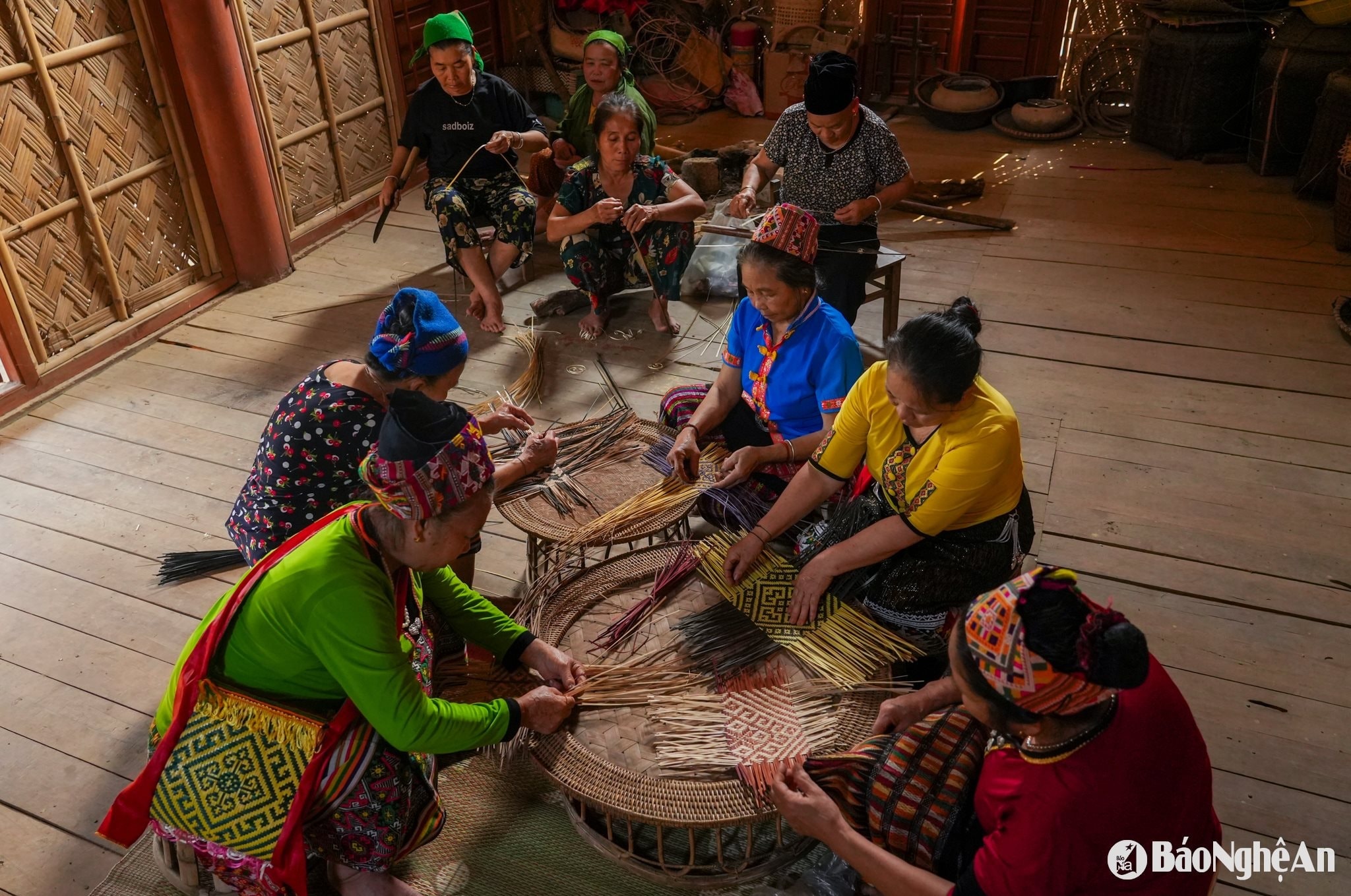
Vocational education has become a fundamental direction, helping people in poor areas have sustainable jobs. This is a shift from simply supporting them to giving them the tools to rise up on their own.
Ms. Ho Thi Chau Loan - Deputy Director of Department of Education and Training
M expands job opportunities
Not only focusing on on-site training, Nghe An also promotes training models associated with businesses, expanding job opportunities for students immediately after graduation.
One of the highlights is the “down the mountain vocational training” program implemented by the Vietnam - Korea Technical - Industrial College in collaboration with the former Ky Son district. The program has attracted 61 highland students to participate, of which 32 have become new students of the intermediate technical program. They are exempted from cultural tuition fees, learn vocational skills on modern equipment, and especially have direct internships at enterprises - where they are guided by the hand, familiarized with the actual production line.
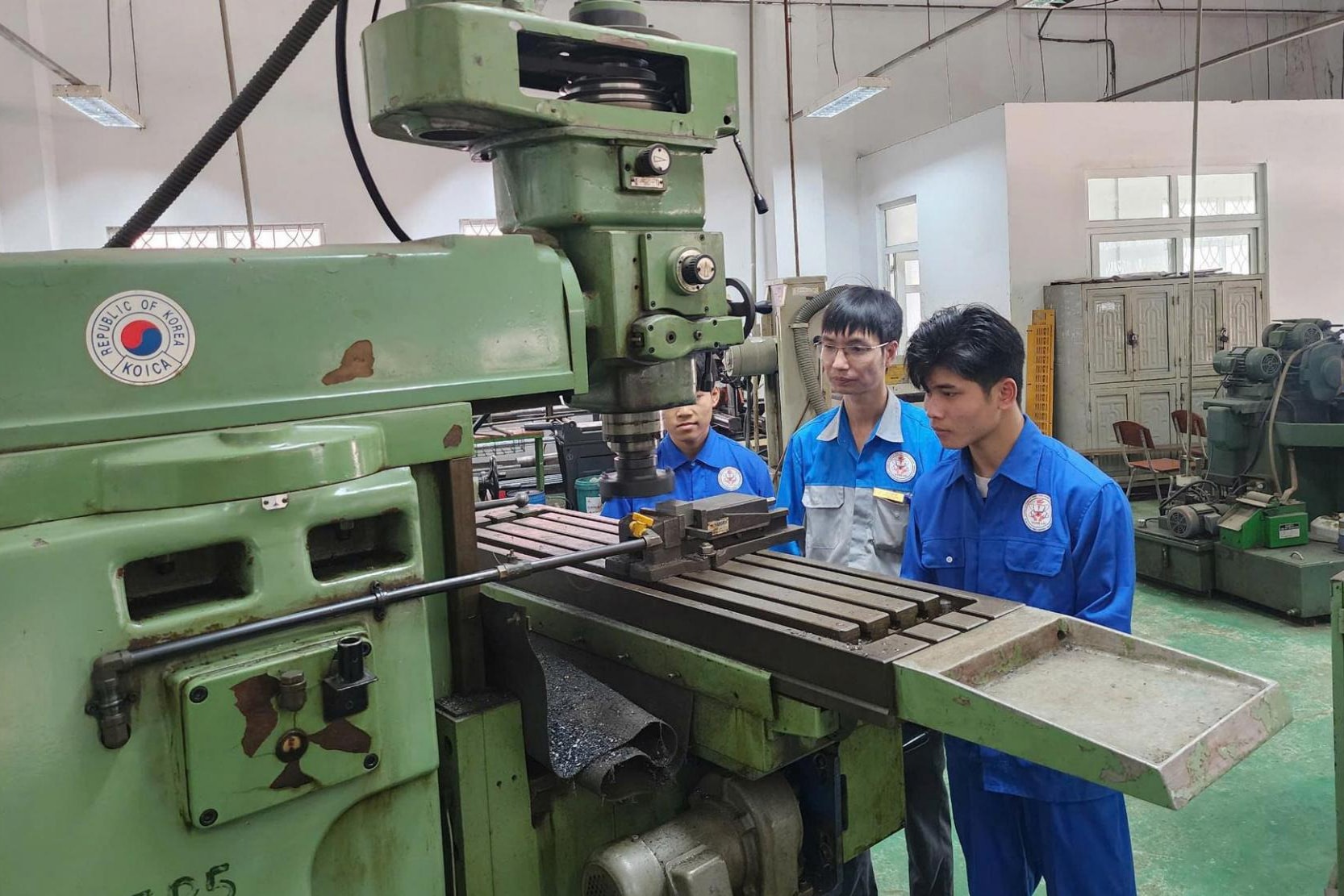
Lo Van Hung from Muong Long commune said: “My family is poor, and I only knew how to farm before. When the commune introduced me to learn industrial electricity, I really liked it. Now I know how to install and repair electricity for people in the village. Later, I want to open a small shop to both earn a living and help people.”
From such classes, many young Mong, Thai, and Khmu people in disadvantaged areas have their first chance to touch industrial machinery, operate equipment, and read technical drawings. For them, a secondary school diploma is not just a certificate, but a “ticket” to escape poverty and open up a different future.
In the western districts of Nghe An, the movement of socializing vocational education is being promoted. Vocational schools cooperate with businesses to open practical classes in mechanics, welding, agricultural processing, agricultural machinery operation, etc. to train workers in accordance with actual recruitment needs.
Mr. Tran Xuan Dung - Principal of the Western Nghe An Economic and Technical College (located in Thai Hoa ward) said: "Thanks to close cooperation with businesses, many students are employed while still in practice. This is a mutually beneficial model - businesses have a skilled labor force, and students have income and practical experience."
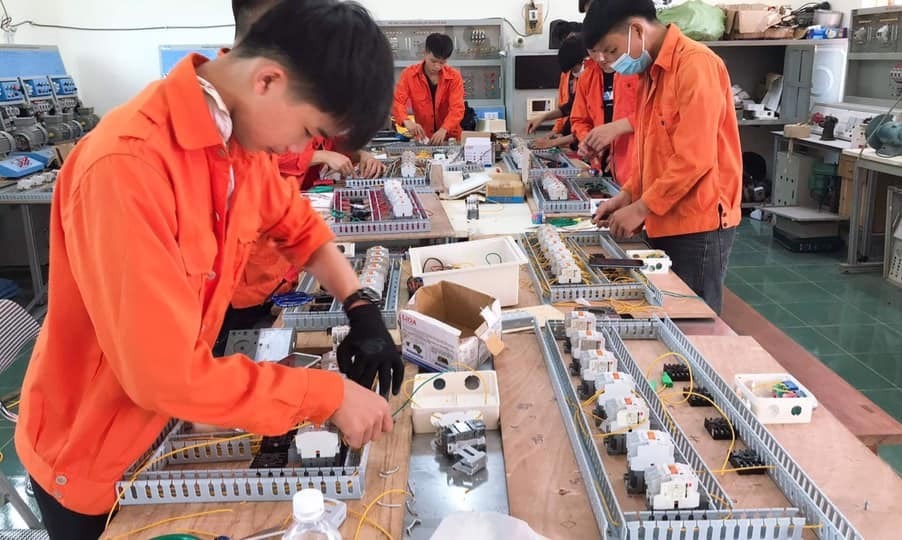
However, the implementation of the Vocational Education Development Sub-project in poor and disadvantaged areas still faces many difficulties. The vocational training support level according to Decision 46/2015/QD-TTg is no longer suitable to reality, while the regulations on the subject of "low-income workers" are slow to be issued. In addition, recruitment in mountainous areas is still difficult due to the people's preference for freelance labor or migration to industrial zones.
On the other hand, the Vocational Education and Sustainable Employment Development Project only supports vocational training for workers from poor households, near-poor households and low-income ethnic minority workers. Meanwhile, workers from poor households, near-poor households who are unable to work or are past working age or are low-income earners have not been able to do so because there is no document guiding the identification of low-income workers according to Decision No. 90/QD-TTg of the Prime Minister.
However, according to Ms. Ho Thi Chau Loan - Deputy Director of Nghe An Department of Education and Training, the province is trying to overcome difficulties with many flexible solutions. Specifically, Nghe An continues to integrate resources, call for social investment in teaching equipment, and at the same time build a product consumption chain to help people maintain stable jobs. For non-agricultural occupations, functional sectors are promoting training models associated with businesses, expanding on-site employment opportunities, contributing to reducing labor migration and gradually developing sustainable livelihoods for people in disadvantaged areas.
Source: https://baonghean.vn/nghe-an-phat-trien-giao-duc-nghe-nghiep-o-vung-kho-khan-10311743.html










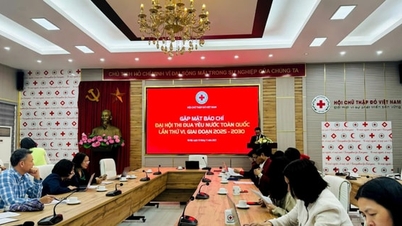














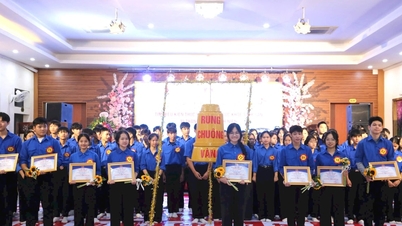
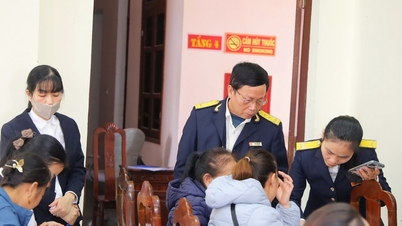
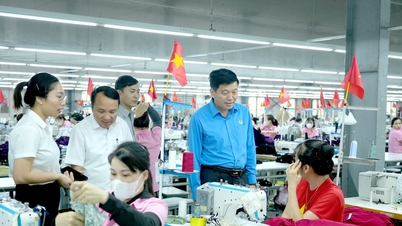


![[Photo] General Secretary To Lam and National Assembly Chairman Tran Thanh Man attend the 80th Anniversary of the Traditional Day of the Vietnamese Inspection Sector](https://vphoto.vietnam.vn/thumb/1200x675/vietnam/resource/IMAGE/2025/11/17/1763356362984_a2-bnd-7940-3561-jpg.webp)







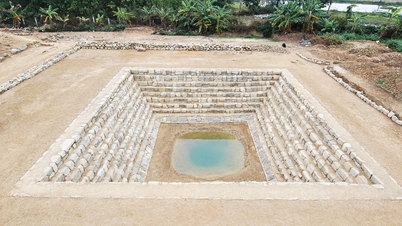



















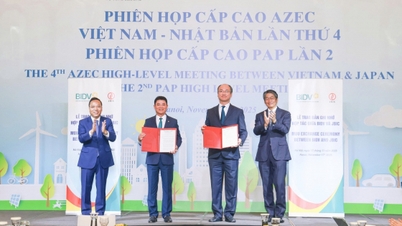




















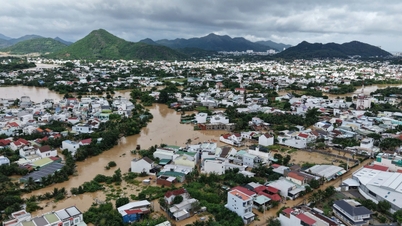






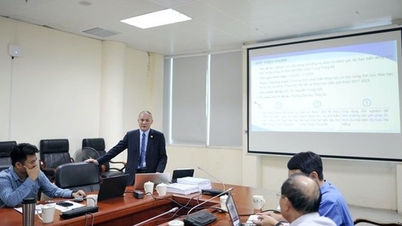







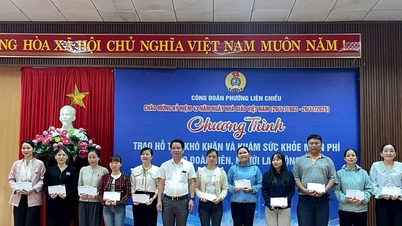














Comment (0)